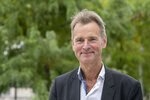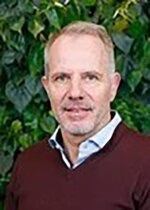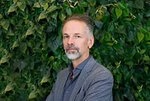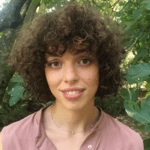Introduction
Key terms: quantitative and qualitative research, philosophical methods, epistemic inclusion, engaged scholarship, introductory course, primarily relevant for students in the middle stages of their PhD trajectory.
ECTS: 2.5
Number of sessions: 4
Hours per session: 4
We are facing an era of major global transitions, involving a plethora of ecological, political, societal and scientific challenges. To come to terms with these challenges, researchers in many disciplines are reconsidering their methods, putting more emphasis on interdisciplinarity and epistemic inclusion through participatory research.
But this is far from easy. It involves reconsidering some of the basic concepts and convictions of your research field; it raises a number of fundamental questions concerning science, truth and responsibility; and it requires critical reflection on the relationship between multiple forms of knowledge and the relationship between knowledge and power.
It is precisely here philosophy has something to offer by facilitating reflection on how research can be made more engaging, comprehensive, and responsive. At the same time, the exposure to concrete and urgent challenges and interdisciplinary dialogue is a beneficial experience for philosophy itself, triggering reflection on the nature and relevance of philosophical knowledge as part of a more comprehensive and inclusive research approach.
The course entails short introductions into a number of key philosophical approaches via readings, lectures, discussions, and case studies. We will focus on methodology; on the how and now. How to bridge the gap between research traditions in academic settings? How to include other forms of knowledge (practical, professional, experiential, existential knowledge) in our work?
Practical information
- Start date
- Expected
- Price
- Free and paid
- Micro Credential
- No
- Teaching mode
- In-person
Who is this for?
No prior knowledge is required to attend the course, and we warmly welcome participants from a wide variety of research traditions and disciplines.
The course is primarily intended for researchers who are in the middle stages of their PhD trajectory.
Relations with other courses
This course has no substantial overlap with other courses offered by the EGSH but rather complements other EGSH methods courses by providing philosophical reflection on evolving research methodologies.
Sessions and preparations
Session 1, part 1: Introduction (by all lecturers)
We will introduce a number of philosophical approaches, including phenomenology, dialectics, historical research, analytic philosophy, and conceptual engineering. These approaches will be further elaborated in the next sessions of the course.
Preparation of each session consists of reading the recommended literature. We will offer a syllabus a few weeks before the start of the course with further information.
Session 1, part 2: Phenomenology (by Maren Wehrle)
The aim of phenomenology is to explore the structure of experience and describe phenomena we experience without preconceptions and assumptions or, to put it differently, to articulate and question the preconceptions at work in our experience of the world, with special attention given to scientific research practices.
Session 2, part 1: Historical research (by Han van Ruler)
Research is a dialectical process, starting from an initial situation where inherent tensions emerge, giving rise to conflicts and contradictions, eventually resulting in a deepened understanding. Dialectics sees scientific research as a journey, passing through particular configurations of knowledge towards more comprehensive forms of self-understanding, via confrontation with other perspectives.
Session 2, part 2: Dialectics (by Hub Zwart)
Conceptual engineering focuses on how to best assess and improve our conceptual schemes and repertoires and has a normative agenda: conceptual engineers aim to prescribe which concepts we ought to have and use, instead of merely describing those we have and use.
Session 3, part 1: Conceptual engineering (by Giulia Napolitano)
Structuralism aims to uncover the structural patterns that guide the way we think, perceive and act, also in scientific research practices, which are seen as part of a more comprehensive system of thinking whose structure and way of functioning can be revealed and problematised.
Session 3, part 2: Structuralism (by Ruud Welten)
Philosophers such as René Descartes have had a profound impact on modern thinking and scientific research methods up to this day, and yet their work is often misunderstood. Rereading them reveals that they have something to say even concerning the epistemic challenges of today.
Session 4, part 1: Application (by all lecturers)
During the final session, we will develop a comprehensive view concerning a theme proposed by the participants during the first meeting.
Session 4, part 2: Evaluation (by all lecturers)
How has the course affected your research?
Start date
Session 1: January 6 (Tuesday) 2026 | 13.00-17.00 hrs | Offline (Polak building, room 3-06)
Session 2: January 13 (Tuesday) 2026 | 13.00-17.00 hrs | Offline (Polak building, room 3-06)
Session 3: January 20 (Tuesday) 2026 | 13.00-17.00 hrs | Offline (Polak building, room 3-06)
Session 4: January 27 (Tuesday) 2026 | 13.00-17.00 hrs | Offline (Polak building, room 3-06)
Instructors
 Hub Zwart (1960) studied philosophy and psychology at Radboud University Nijmegen and defended his thesis in 1993. In 2000 he became full Professor of Philosophy at the Faculty of Science RU Nijmegen. In 2018 he was appointed as Dean of Erasmus School of Philosophy (Erasmus University Rotterdam).
Hub Zwart (1960) studied philosophy and psychology at Radboud University Nijmegen and defended his thesis in 1993. In 2000 he became full Professor of Philosophy at the Faculty of Science RU Nijmegen. In 2018 he was appointed as Dean of Erasmus School of Philosophy (Erasmus University Rotterdam). Maren Wehrle is Associate Professor in Practical Philosophy at Erasmus School of Philosophy. Maren obtained a Master degree in Philosophy, German Literature and Historical Anthropology at the University of Freiburg, Germany (2006). In 2011 she defended her dissertation at the University of Freiburg entitled ‘Horizonte der Aufmerksamkeit. From 2012 until 2017 she worked as post-doctoral researcher and Lecturer at the Faculty of Philosophy (Center of Phenomenoloigcal and Continental Philosophy: Husserl Archives) of KU Leuven, Belgium. Her areas of specialisations are Phenomenology, Philosophical and Historical Anthropology, Feminist Philosophy and Cognitive Psychology. Recently she published an 'Introduction to the Method of Phenomenology' ('Phänomenologie. Eine Einführung'. In Methoden der Philosophie. Springer 2022). She co-leads the Flagship project ‘Integrative Neuromedicine', Convergence Health and Technology, EMC, EUR, and TU Delft.
Maren Wehrle is Associate Professor in Practical Philosophy at Erasmus School of Philosophy. Maren obtained a Master degree in Philosophy, German Literature and Historical Anthropology at the University of Freiburg, Germany (2006). In 2011 she defended her dissertation at the University of Freiburg entitled ‘Horizonte der Aufmerksamkeit. From 2012 until 2017 she worked as post-doctoral researcher and Lecturer at the Faculty of Philosophy (Center of Phenomenoloigcal and Continental Philosophy: Husserl Archives) of KU Leuven, Belgium. Her areas of specialisations are Phenomenology, Philosophical and Historical Anthropology, Feminist Philosophy and Cognitive Psychology. Recently she published an 'Introduction to the Method of Phenomenology' ('Phänomenologie. Eine Einführung'. In Methoden der Philosophie. Springer 2022). She co-leads the Flagship project ‘Integrative Neuromedicine', Convergence Health and Technology, EMC, EUR, and TU Delft. Prof. dr. J.A. (Han) van Ruler is Professor of Intellectual History and Vice-Dean of Erasmus School of Philosophy (ESPhil) at Erasmus University Rotterdam. In 2019, he was awarded an NWO 'Open Competition' Research Grant for the project Decoding Descartes. Formerly, Han van Ruler acted as President of the Dutch National ‘Philosophy Month’ Foundation (Stichting Maand van de Filosofie; 2014-2019), as Scientific Director of the Dutch Research School of Philosophy OZSW (2014-2018), as President of the OZSW History of Philosophy Section (2014-2018), as President of the Dutch National Philosophy Olympiad NFO (2012-2017) and as Co-organiser of the 25th International Philosophy Olympiad, Rotterdam, 25-28 May 2017. Since 2011, he is General Editor of the prestigious book series Brill’s Studies in Intellectual History (BSIH) – founded by Arjo Vanderjagt in 1987.
Prof. dr. J.A. (Han) van Ruler is Professor of Intellectual History and Vice-Dean of Erasmus School of Philosophy (ESPhil) at Erasmus University Rotterdam. In 2019, he was awarded an NWO 'Open Competition' Research Grant for the project Decoding Descartes. Formerly, Han van Ruler acted as President of the Dutch National ‘Philosophy Month’ Foundation (Stichting Maand van de Filosofie; 2014-2019), as Scientific Director of the Dutch Research School of Philosophy OZSW (2014-2018), as President of the OZSW History of Philosophy Section (2014-2018), as President of the Dutch National Philosophy Olympiad NFO (2012-2017) and as Co-organiser of the 25th International Philosophy Olympiad, Rotterdam, 25-28 May 2017. Since 2011, he is General Editor of the prestigious book series Brill’s Studies in Intellectual History (BSIH) – founded by Arjo Vanderjagt in 1987. Ruud Welten is professor of philosophy at Erasmus University Rotterdam and associate professor at Tilburg University. He mainly publishes on French existentialist philosophy. Welten wrote several books and articles – nationally and internationally – including Meaningful Violence. Sartre, Camus, Simone de Beauvoir and Merleau-Ponty.
Ruud Welten is professor of philosophy at Erasmus University Rotterdam and associate professor at Tilburg University. He mainly publishes on French existentialist philosophy. Welten wrote several books and articles – nationally and internationally – including Meaningful Violence. Sartre, Camus, Simone de Beauvoir and Merleau-Ponty. Giulia Napolitano is an Assistant Professor at the School of Philosophy at Erasmus University Rotterdam. Before joining EUR, she was a Postdoctoral Fellow in the Applied Epistemology Project at UNC Chapel Hill. She received her PhD in philosophy from the University of California, Irvine in 2022.
Giulia Napolitano is an Assistant Professor at the School of Philosophy at Erasmus University Rotterdam. Before joining EUR, she was a Postdoctoral Fellow in the Applied Epistemology Project at UNC Chapel Hill. She received her PhD in philosophy from the University of California, Irvine in 2022.
Contact
- Enrolment-related questions: enrolment@egsh.eur.nl
- Course-related questions: zwart@esphil.eur.nl
- Telephone: +31 (0)10 4082607 (Graduate School)
Facts & Figures
- Start date
- Expected
- Price
- free for PhD candidates of the Graduate School
- €575- for non-members
- consult our enrolment policy for more information
- Tax
- Not applicable
- Micro Credential
- No
- Instruction language
- English
- Teaching mode
- In-person
